Let me cut to the chase with the big-picture takeaway of this review:
Yes, I do think the Indie Bible is legit, and if you’re committed to doing your own promotion / outreach, it’s likely worth the investment.
There’s nuance here. I don’t think the Indie Bible is for everyone, necessarily, and I’m going to get into the details of why that is here in a bit. But my high-level view is that it is worth it for a lot of indie musicians, and with that in mind, here’s the link if you want to grab it:
Get the Indie Bible here.
(And yeah, I’m an affiliate.)
Okay, let’s dig into the nuance a bit. I’m going to cover a few things that I hope will be helpful as you evaluate the Indie Bible for yourself:
- My personal backstory with the Indie Bible
- What the Indie Bible is
- What it includes
- Whether the contact info in the Indie Bible is legitimate
- How to use the Indie Bible
- Who I think it’s right for
Here we go.
My backstory with the Indie Bible
First, I want to confirm that I am, in fact, a real customer of the Indie Bible:
It might be hard to read all of that (I think you can click the image to blow it up), but that’s my receipt for purchasing the “Ultimate Bundle” Indie Bible package, which included the PDF version of the Indie Bible, access to their online database, and their Indie Spotify Bible (as an add-on). So I’m recommending this product based on my personal use of it.
In fact, I’ve actually bought the Indie Bible every year for the past few years.
I run a PR agency for indie artists called Two Story Media where I work to get artists press coverage (and do other stuff, too, but press is a big piece of our offering).
When I first started running the agency around 2017, I had a list that I’d personally built of 100+ blogs. But I quickly realized that it was nowhere near large enough a network to get consistent press results with. I forget where I’d first heard of the Indie Bible, but I somehow ended up on their email list, and it was a pretty easy call for me to pull the trigger. The result: They instantly expanded my network to thousands of blogs, radio stations, and press outlets.
These days, I have a much more extensive personal network built up, but I still buy the Indie Bible every year because they usually turn up contact changes and new blogs or press outlets that I miss.
I spent $68 on the bundle this year, and it’s already been worth it.
“Great,” you’re thinking, “I’m glad you like it. But I’m still not sure what the Indie Bible actually is.”
Fair. Let’s get into that.
What is the Indie Bible?
The Indie Bible is, at its core, a list of music industry contacts. It’s ultimately more than that, too – there’s a bunch of helpful info and advice in the latest version – but it’s not less than that.
The value of this contact list is that, as a musician, you can then reach out directly to people to promote your music. Let’s say you put out a single and you’d like to see it covered in music blogs. Without the Indie Bible / a developed contact list, you’ll have to spend copious hours finding blogs, digging for contact info, and identifying the right channel to submit your pitch on. I’ve done this myself, and it is very tedious work.
With the Indie Bible, you have information on 2,000 blogs – meaning you don’t have to dig. Almost everything you need is right there, ready for you to make your pitch.
It’s a huge time-saver.
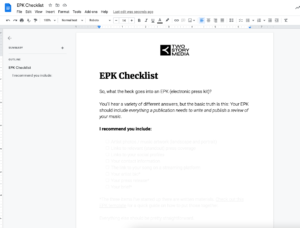
FREE RESOURCE 👇
EPK Checklist & Template
Want to get your music covered in cool publications?
I get like 9 million submissions each day from artists. Here’s what you need to include in your EPK so you stand out / get covered.
What’s included in the Indie Bible?
Okay, so that’s the premise of the product. Here’s what’s included in the latest version, according to the product sales page:
- 2000 magazines and music blogs
- 4500 radio stations
- 960 labels and distributors
- 410 promotion, marketing, management, and PR services
- 190 sites where you can upload your band’s MP3s or videos
(Fun fact: The blog you’re on right now, Two Story Melody, is one of the 2,000 included in the Indie Bible. They didn’t contact me to ask if I was okay with that – but I totally am, so it’s all good.)
Note that this doesn’t include Spotify playlist curators. To get access to that list, you have to buy the Indie Spotify Bible. It’s sold at a standalone price of $78 here, but for the past two years I’ve been able to include it as an “add-on” at a discount after I’ve added the Indie Bible Ultimate Bundle to my cart. (I can’t guarantee that that will work for you because I think they change up their offers all the time, but it’s worth a shot.)
The Indie Spotify Bible includes contact info for over 4,200 playlists.
The company also offers:
- The Apple Music Bible (with contact info for 3,700 playlist curators)
- The Indie YouTube Bible (with contact info for over 3,500 playlists)
- The Booking Agents Directory (I’ve never used this one and they don’t say how many agents are included)
Each of these products is sold separately, although you can get them all packaged together if you go with the “Extreme Bundle“.
The gist of each product is the same. For each platform that they offer contact info for (whether it’s a blog, magazine, radio station, label, playlist, etc.), the Indie Bible provides you with the following lines of information:
- Platform title
- Address
- Website
- Any social media / relevant profile links
- Brief description of the platform
- Submission guidelines
For example, here’s the information that they have listed for the blog that you’re reading right now (Two Story Melody):
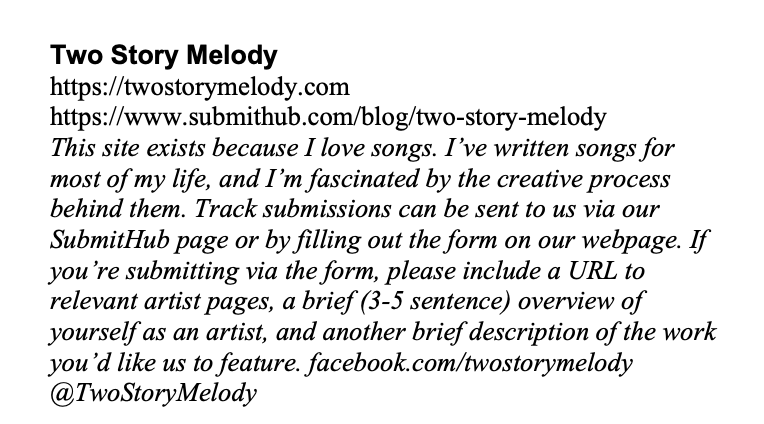
⬆️ That’s all accurate, by the way.
But you’ll notice that they don’t have our Instagram profile, Twitter handle, or my email address. And that leads me to my next point…
Is the contact info in the Indie Bible legit?
In my experience, most often, the answer is yes. But there are a few important caveats.
First, it’s pretty rare that an Indie Bible listing has all of the information on a platform.
In most cases, this is totally fine. Take my listing, for example. It doesn’t show my email address, my managing editor’s email address, or our social profiles, but it is accurate. If someone were to follow the guidelines that the Indie Bible team pulled for my blog, they’d have a legitimate shot at getting covered with us. So, artists aren’t missing out too much with what’s not there.
I’ve found that most of the platforms listed in the Indie Bible have similar omissions – and I’ve also found that, in most cases, the omissions don’t matter all that much. Still, before you pitch to a platform, it’s worth double-checking your info to make sure you have what you need.
Second, the PDF version of the Indie Bible will go out of date.
This is why I buy the Indie Bible every year – curator contact information changes all the time. Actually, the music blog scene as a whole changes all the time. I deleted a fair number of blogs from my personal database in 2023 because they were either inactive or totally removed from the internet.
The moral of the story is that, if you buy the PDF at the beginning of the year, there’s a good chance that many of the listings will be outdated by the end of the year.
As a consequence, I recommend that, if you’re going to get the Indie Bible, you purchase the Online Database in addition to the PDF version.
It’s basically just an online version of the same contact information, but the benefit is that the online version is regularly updated. It’s worth noting that, as of now, you have to purchase a bundle to get the Online Database – you can’t buy online access separately.
The most affordable offer at the moment is the “Ultimate Bundle“, which includes the PDF and online access for one year for $60.
Third, many curators / platforms don’t know that they’re in the Indie Bible. and this can sometimes make communication a little awkward.
As I mentioned above, nobody at the Indie Bible contacted me to let me know that Two Story Melody was going to be listed. I don’t mind; actually, I’m glad to be listed, because for me, the more artists that submit music to our blog, the better.
But there are some curators and platforms that are listed and probably don’t want to be.
I’ve found this out firsthand when I’ve gone to pitch people. The other day, I DM’d the curator of a Spotify playlist on Instagram (which was the contact channel listed in the Indie Bible), asking if he’d consider placing one of my artists’ songs in his list. His response:
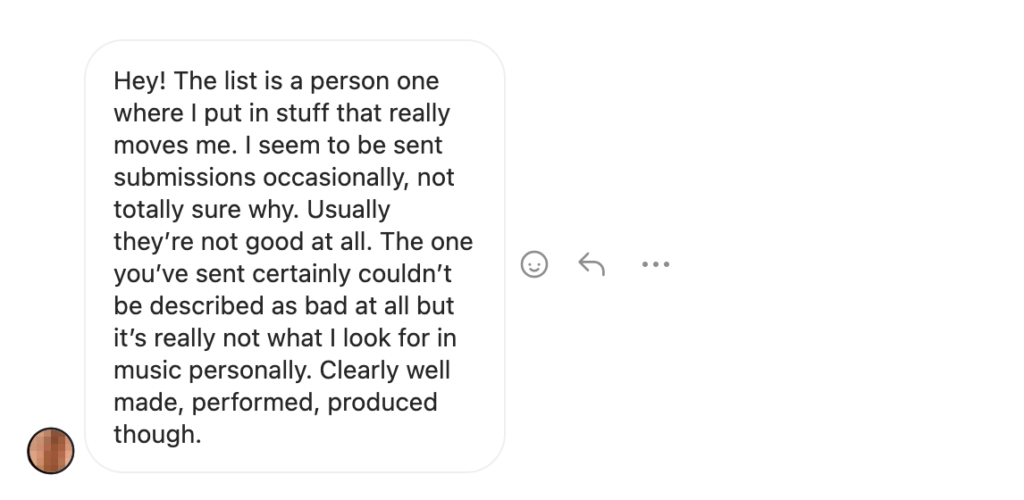
“I seem to be sent submissions occasionally, not totally sure why…”
We had a friendly back-and-forth, and I let him know that his playlist and Instagram handle were listed in the Indie Spotify Bible, which took him by surprise.
The moral of the story: His contact information was correct, but he didn’t want to be contacted. This doesn’t happen too often, but I wouldn’t say it’s uncommon, either.
The bottom line: The information in the Indie Bible is usually legit, but you should probably still do your research before sending a pitch to someone.
With that in mind…
How should you actually use the Indie Bible?
I actually have a whole course on this topic; it’s called Become Your Own PR Pro, and it walks through the exact strategy that I recommend artists use to pitch music blogs / get covered. And it’s applicable to other types of pitches, too, like pitches for Spotify playlist placements.
Here’s the link if you want to get all the details / use the Indie Bible well.
If you don’t have time for the details, though, I’ll offer a few words of wisdom here.
1. Verify that the info you’re using is legit. This is pretty easy – double check the Indie Bible listing by clicking through to the platform you’re pitching and making sure things line up. They usually do.
2. Customize your pitch. Don’t copy/paste something bland when you email or message someone; make it clear that you’re reaching out to a specific platform for a specific reason.
On that note, here’s a quote that’s included in the Indie Bible from an article I wrote. (I actually didn’t know this was in there until today – again, they didn’t ask me – but at least they attributed it correctly.)
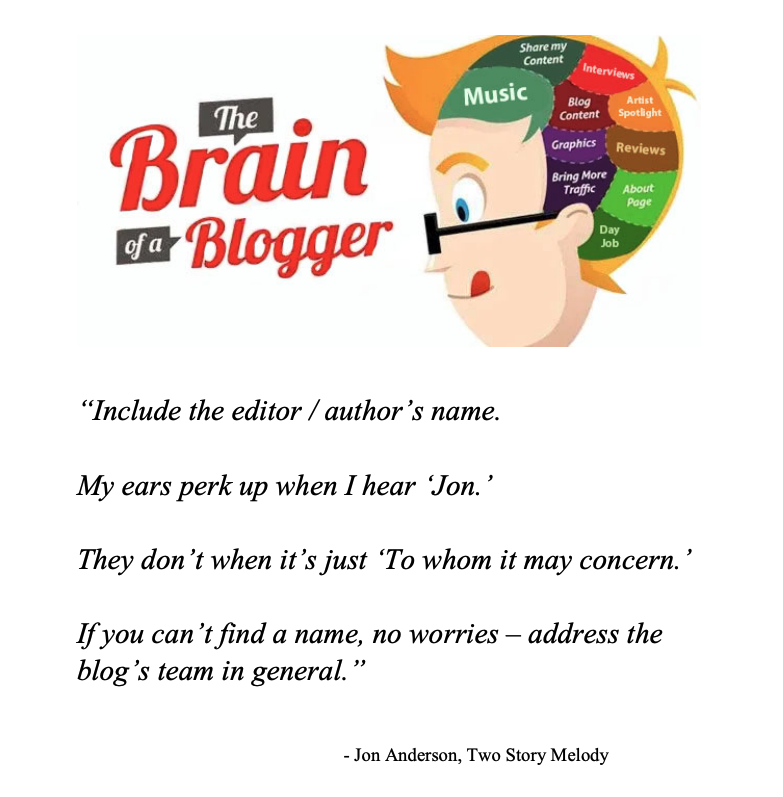
The Indie Bible is filled with nuggets like this. Some of them are kind of obvious, but some are pretty helpful.
3. Track everything. I recommend creating a Google spreadsheet of the platforms you’re targeting, then working through it with notes on when you pitch and what responses you get.
Again, I’ve got a ton more detail on how this process works here.
Who is the Indie Bible right for?
All right, last point here: The Indie Bible is best for musicians who are ready to spend serious time doing their own outreach and promotion.
To put it simply, the single biggest qualifier is time.
In my experience, running a legitimate outreach campaign takes at least five hours, even if you have all of your contact information ready to go. (If you don’t have your contact information ready to go, it takes a lot longer – 15 or 20 hours is conservative.)
You’ll get placements with around 2-5% of the places you pitch your music to; that rate varies from platform to platform, but it’s a good general baseline. That means that you need to pitch roughly 100 outlets or playlist curators to expect five placements. It takes time to write out all of those messages.
If you don’t have that time, then the Indie Bible isn’t for you. Honestly, it’s very understandable if that’s the case. We’re all busy, our time is valuable, and in many cases those five hours might be better spent making music.
If that’s you, you should probably just run a SubmitHub campaign (which is far less time-intensive) or hire a legit promo company to run things for you. Actually, if you have the budget for it, this might be your go-to option anyway. It’ll definitely take things off of your plate.
In most cases, though, I recommend running a press / playlist campaign yourself before hiring a PR company, because you’ll get insight into how the processes work and what you should expect. So, if you’re an indie musician pushing into promo and you don’t have a bunch of money to blow, try to carve out five hours if you can.
Long-story-short, the Indie Bible is right for you if…
- You want your music to get streams / coverage but aren’t ready to pay a promo company
- You have five hours to run an outreach campaign
If that’s you, you should probably pull the trigger and get the Indie Bible.
Final encouragement for you
Hopefully, this review has been helpful as you consider whether or not the Indie Bible is worth it for your needs. Again, while it has a few shortcomings and it isn’t necessarily for everyone, my opinion (proven through my own years of patronage) is that it is a legit resource.
Regardless of whether you get it, I’m wishing you good luck as you work through your promo considerations. Marketing your music can be daunting, but it’s worth it – because music is worth it.
You’ve got this.


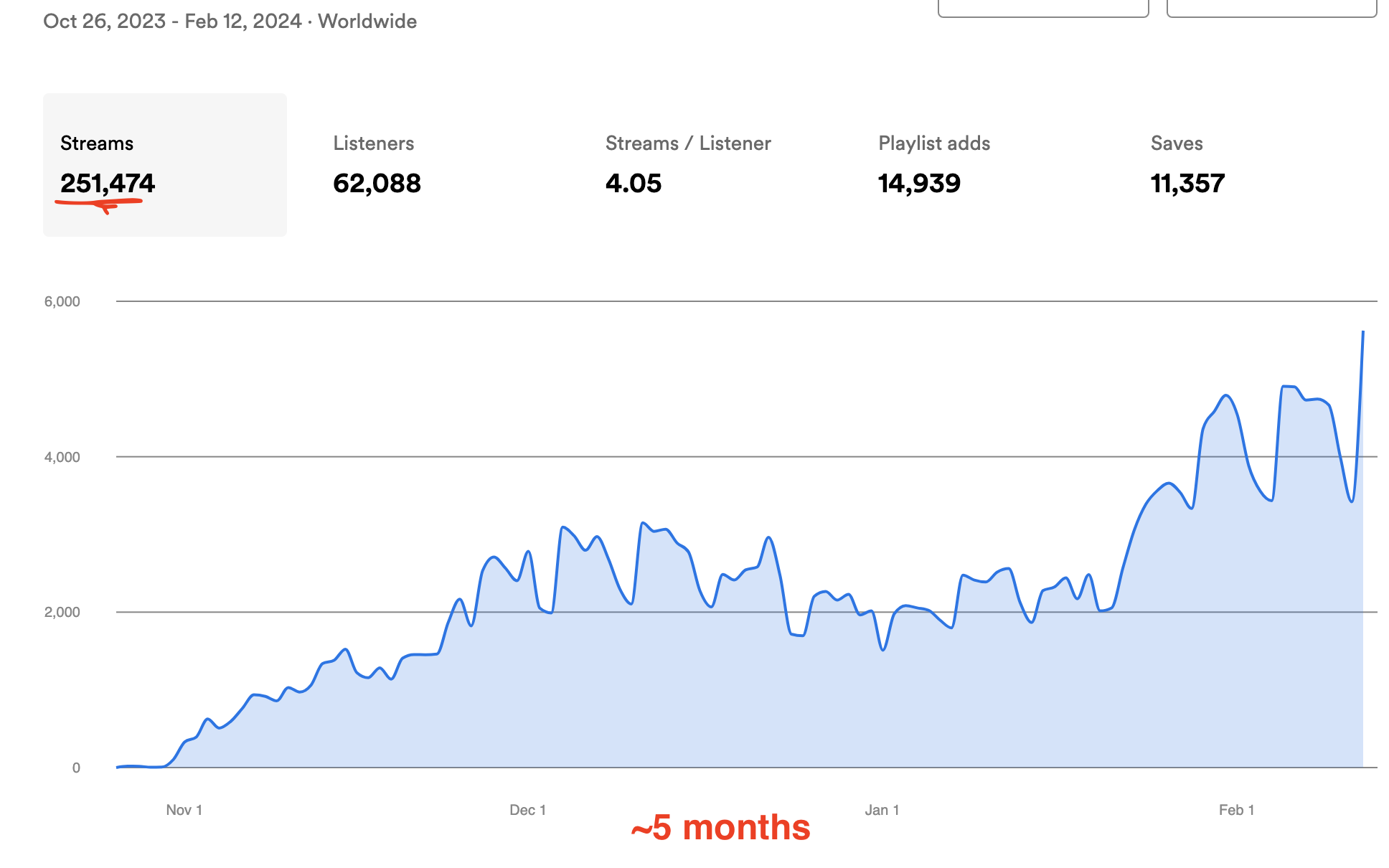
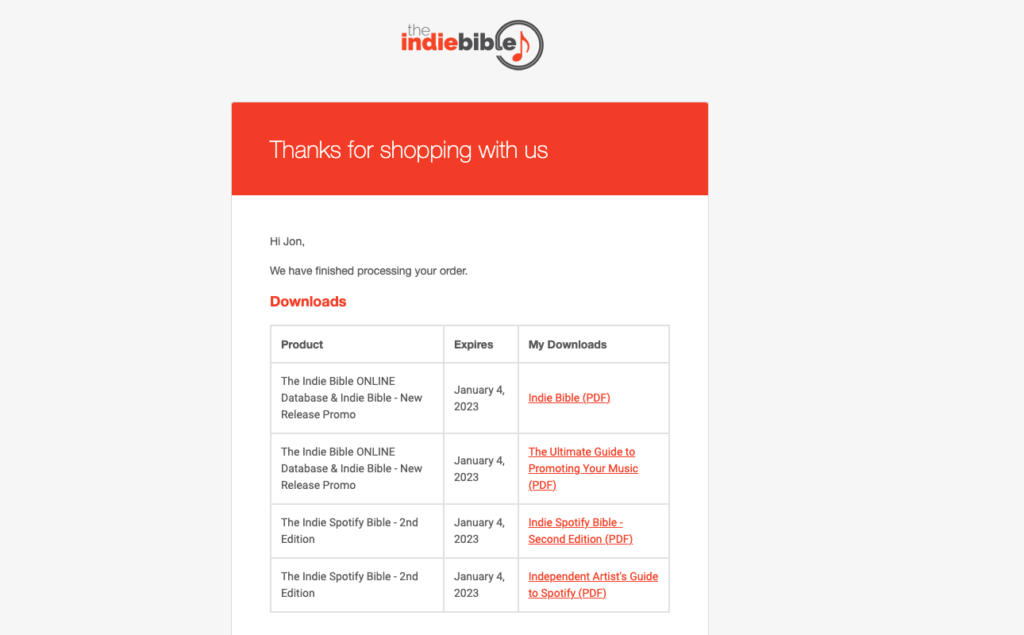
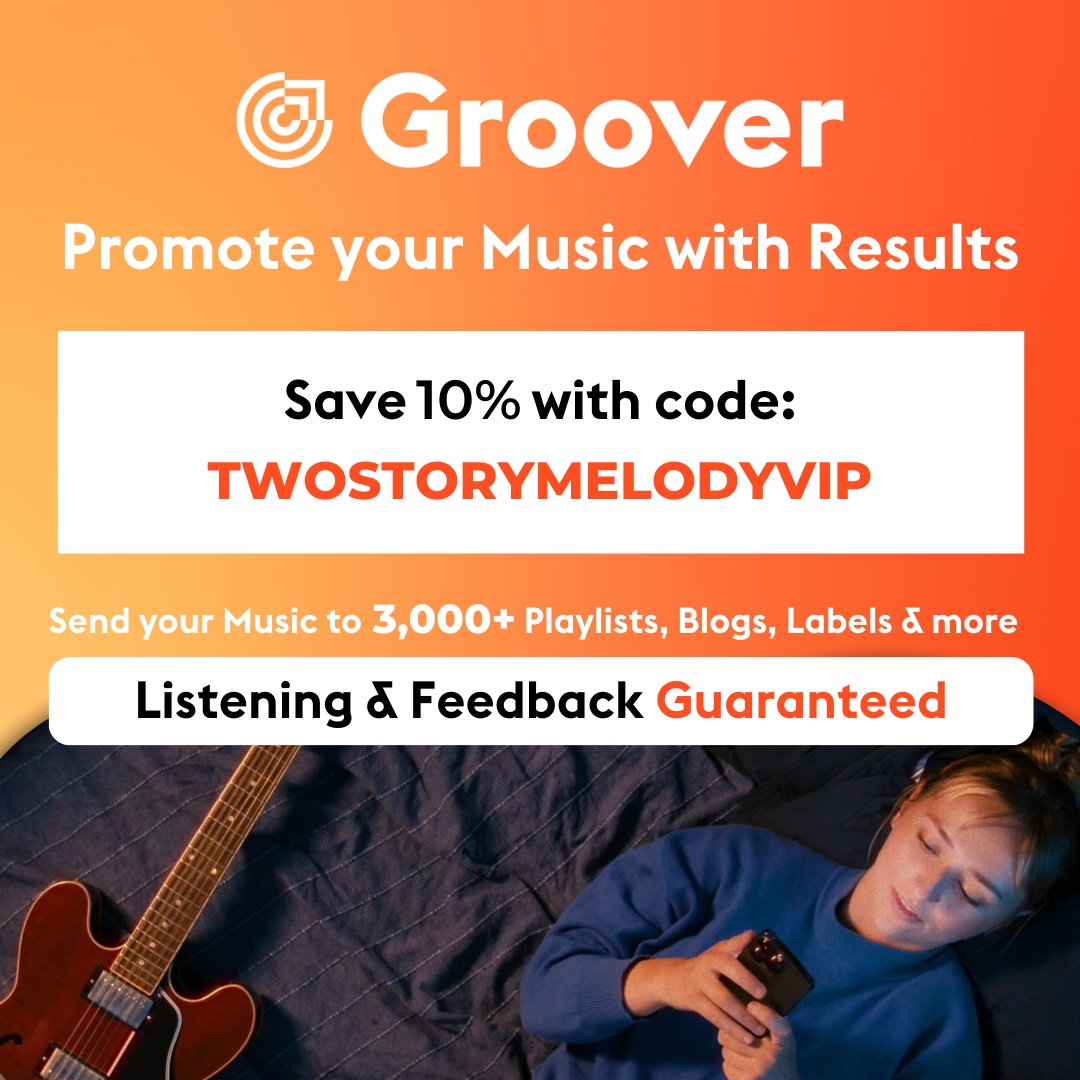


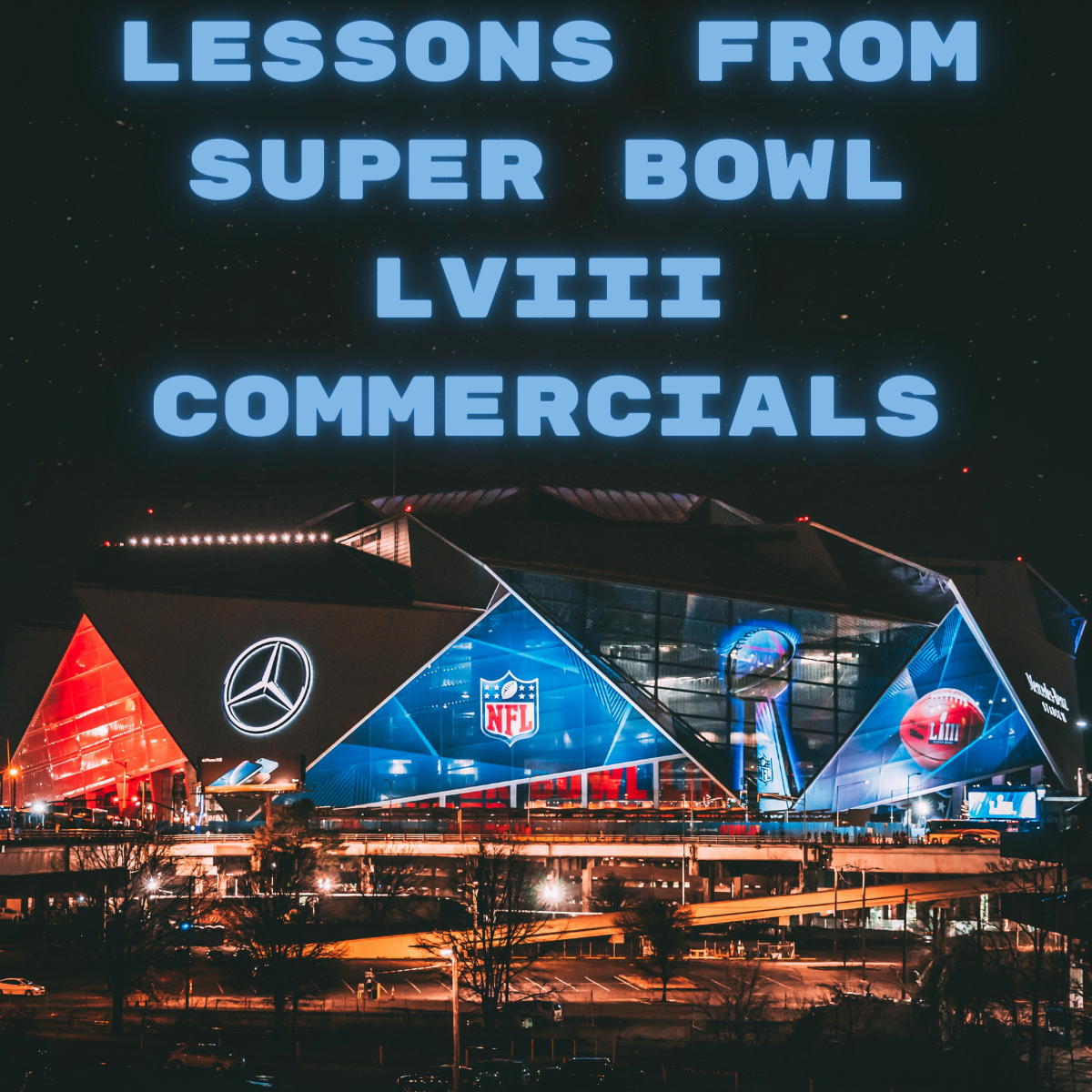

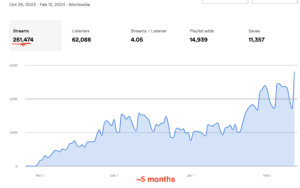
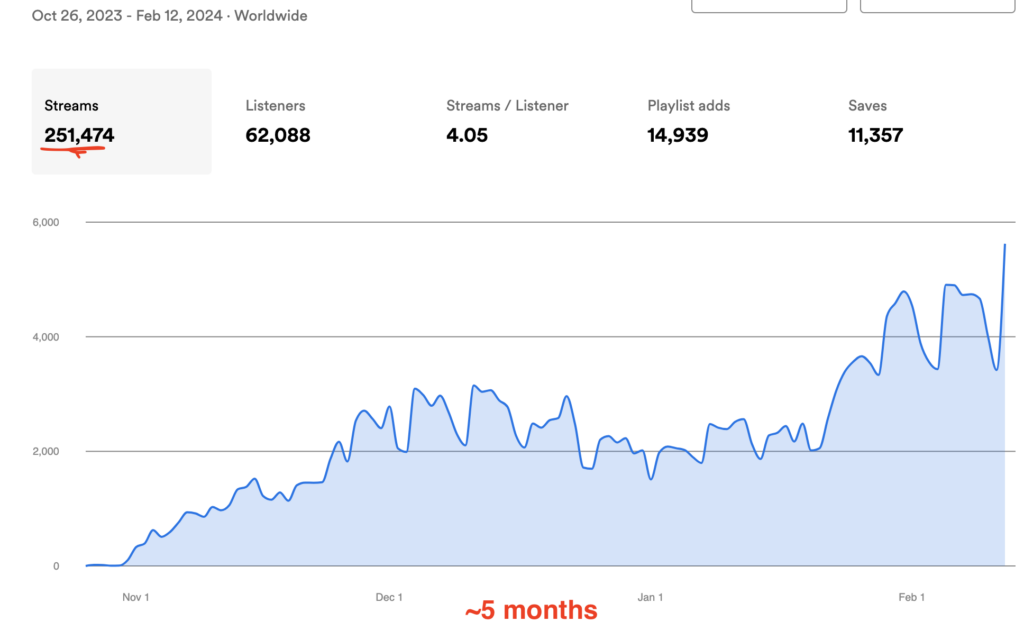
2 Responses
Thank you for taking the time to right this all out. My 15 year old daughter is an independent artist who self-produces her music after writing, recording, and mixing it. I am trying to learn how to help her get her music out to the world and debated the Indie Bible. You helped make my decision easy for me. Thank you!
Thanks, Kim! Yeah, if you want to do your own outreach, IB can definitely be a timesaver. I’m glad the review was helpful and wishing your daughter good luck!